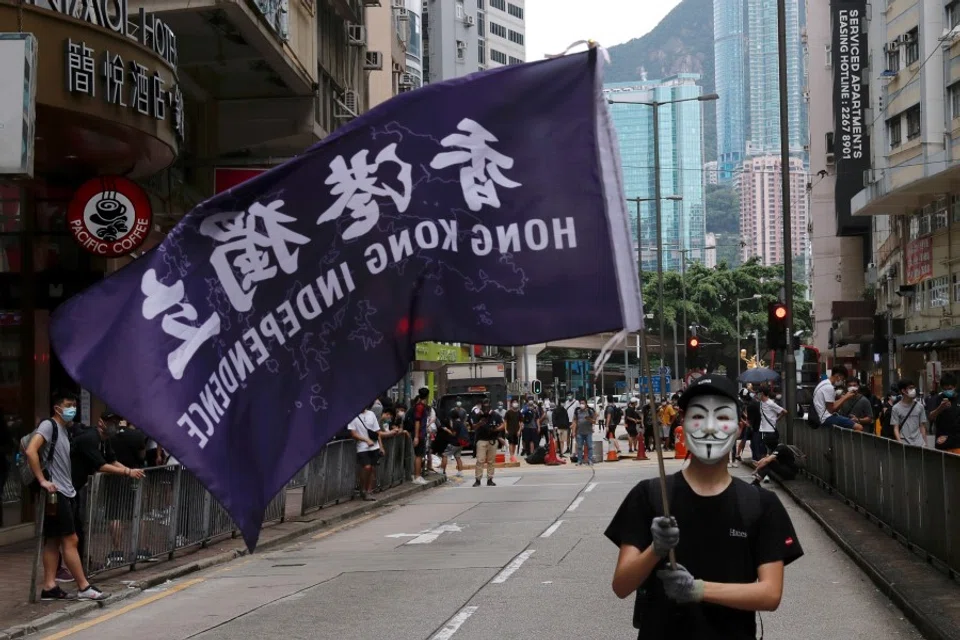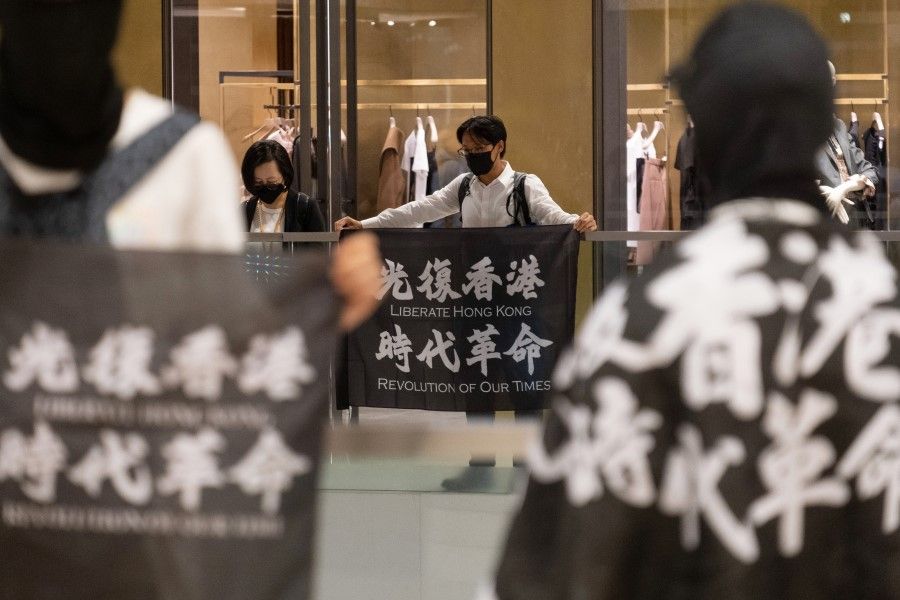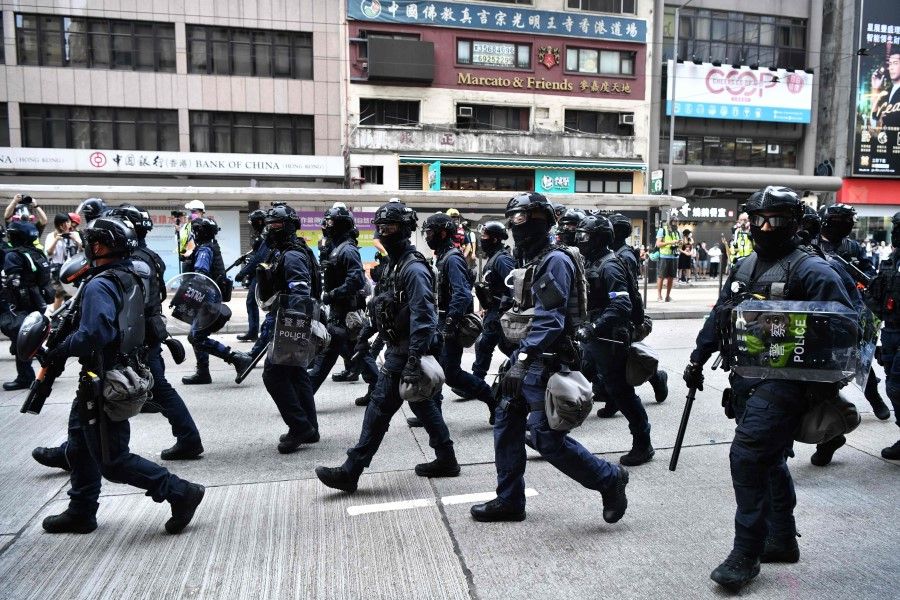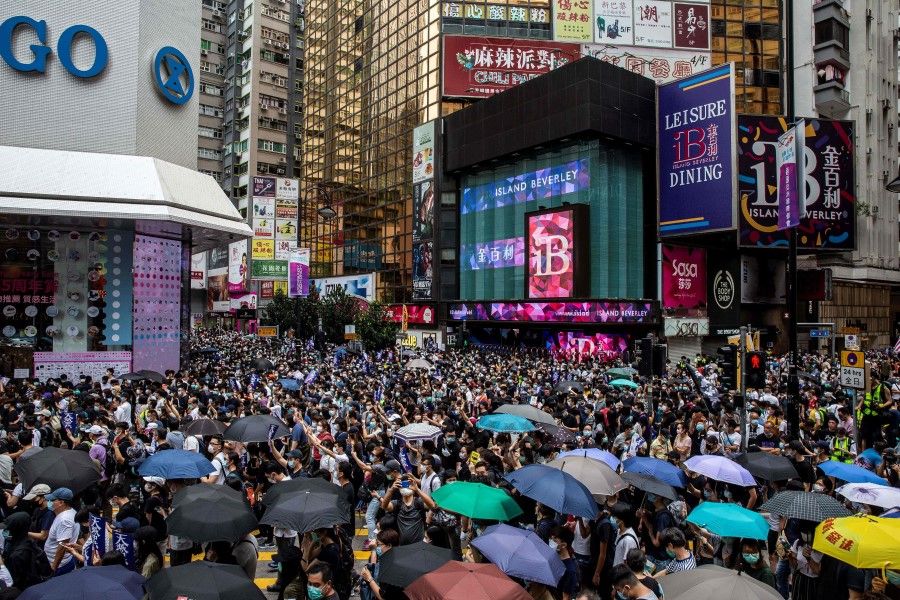Why Beijing is taking the risk to push through the national security law and rein in Hong Kong

A national security law for Hong Kong proposed at the ongoing annual "Two Sessions" in China has become the highlight of the meetings. Amid the surprise, many people are nervous about Hong Kong's future.
In fact, the signs were already there at the Fourth Plenum of the 19th Central Committee of the Chinese Communist Party in October last year. Only thing is, given the model of "Hong Kong people administering Hong Kong with a high degree of autonomy" (港人治港、高度自治), people are used to mainland China not directly intervening in Hong Kong's affairs, and have even accepted that Article 23 of Hong Kong's Basic Law will not work in Hong Kong. (NB: Chapter II, Article 23 states: "The Hong Kong Special Administrative Region shall enact laws on its own to prohibit any act of treason, secession, sedition, subversion against the Central People's Government, or theft of state secrets, to prohibit foreign political organisations or bodies from conducting political activities in the Region, and to prohibit political organisations or bodies of the Region from establishing ties with foreign political organisations or bodies.")
China's top leaders already showed last October that they wanted to roll out a national security law for Hong Kong, and were resolved to implement it at this year's Two Sessions. However, due to the coronavirus, the Two Sessions were postponed from March to May, and the law was delayed by two months.
If not for last year's anti-extradition bill protests in Hong Kong spinning out of control, China's top leaders might not have bothered with Hong Kong. After all, over the past couple of years, China-US relations have rapidly deteriorated and China is facing much greater external pressures, and the top leaders do not want Hong Kong to be a hot topic that brings more variables to China's relations with the West.
A law to extradite criminals - which has nothing to do with most Hong Kong people - sparked chaos, which remains unresolved. The incident has exposed Hong Kong's deep-rooted conflict, and poses an unprecedented challenge to "one country, two systems". Even "independence for Hong Kong", which was never an issue before, has become an option for the opposition. At the same time, Hong Kong's opposition did score a huge win in the district council elections last November, and might well continue its momentum in the Legislative Council elections in September this year. These developments have clearly changed Hong Kong's political and social environment after its return to China, and will reshape the relationship between mainland China and Hong Kong.

It would not be an exaggeration to say that if Beijing allows Hong Kong to go out of control, "one country, two systems" will exist only in name. Hong Kong will become an Achilles heel that hinders China's development, which will directly impact Beijing's image and governance ability.
This is why the Fourth Plenum emphasised maintaining Hong Kong's constitutional order, highlighting "one country" and safeguarding the central government's general rights of governance over Hong Kong. Not only that, the Fourth Plenum made clear proposals to exert general governance over Hong Kong's administration, judiciary, education, economy, and culture. The judiciary is intended to "build up a strong legal system and enforcement system to safeguard national security in the Special Administrative Regions".
In other words, China's top leaders already showed last October that they wanted to roll out a national security law for Hong Kong, and were resolved to implement it at this year's Two Sessions. However, due to the coronavirus, the Two Sessions were postponed from March to May, and the law was delayed by two months.
Beijing's confidence also comes from wide public support in mainland China for the authorities to clamp down on the chaos in Hong Kong.
The coronavirus has hit China hard and the security law cannot be launched on schedule, but China was the first to control the coronavirus, while the US and other Western countries that support Hong Kong against Beijing are still being ravaged by the pandemic. For China, it is a good time to push out the security law while the coronavirus is seriously impacting the previous international order, and its success in fighting the coronavirus has added to Beijing's confidence in doing so.
Of course, Beijing's confidence also comes from wide public support in mainland China for the authorities to clamp down on the chaos in Hong Kong. Since the anti-extradition bill protests began, the anti-government camp has pointed fingers at the Hong Kong Liaison Office and mainland China businesses in Hong Kong. Mainland Chinese have become targets of mockery and attack by the anti-government camp, drawing the strong ire of mainland China towards the anti-government camp and street protesters in Hong Kong.
Hong Kong society will have to find and create a new footing within the "one country, two systems" framework under the inevitable security law.
One might say that the security law is in line with the general sentiment in mainland China, but has led to deteriorating relations between China and Western countries such as the US. However, Beijing is not too concerned that the unrest in Hong Kong will affect social stability in mainland China.

The fact is, once the law is pushed through, there is no turning back for the Chinese authorities, which will have to complete the process of drawing up and implementing it. The anti-government camp in Hong Kong will definitely react strongly, but the space for resistance will be significantly narrowed, and Hong Kong society will have to find and create a new footing within the "one country, two systems" framework under the inevitable security law.
But compared to the negative impact of Hong Kong breaking away from China and becoming a long-term threat to China's stability, Beijing has no choice but to face the risks and challenges of enacting the law.
The national security law will also limit the influence of external powers within Hong Kong. This has drawn protests and even sanctions from the US and other Western countries. In the short term, the law will make China's external environment more challenging, as it faces possible isolation by Western countries. But compared to the negative impact of Hong Kong breaking away from China and becoming a long-term threat to China's stability, Beijing has no choice but to face the risks and challenges of enacting the law.
On a more macro level, the Hong Kong issue is actually like the Taiwan issue; they are both part of the China-US competition. The US would not allow the security law to be implemented, while China would be unwilling to lock horns with the US and other Western countries on this. We can expect Beijing to complete the national security law as soon as possible, so as to move out of the "Hong Kong problem" and rebuild Hong Kong's political and social system.
Note:
The White House has said that the proposed national security legislation for Hong Kong could lead to US sanctions and threaten the city's status as a financial hub. Top US officials warned Friday that the move could jeopardise the city's special trade status.
US President Donald Trump said his government would react strongly if China pushed ahead with the national security law, while Secretary of State Michael Pompeo strongly urged Beijing to reconsider its "disastrous proposal", and to respect Hong Kong's high degree of autonomy, democratic institutions, and civil liberties, which are key to preserving the latter's special status under US law.
Hong Kong's security and police chiefs have said "terrorism" is growing in the city, as they supported Beijing's move.
On its part, Beijing has warned of a "new Cold War" with the US. Speaking at a news conference on Sunday, Chinese Foreign Minister Wang Yi said: "Hong Kong affairs are China's internal affairs and allow no external interference." He reiterated that the central government is in charge of upholding national security in China, as is the case in any other country. He further said: Through Article 23 of the Basic Law, the central government authorises the Hong Kong Special Administrative Region (SAR) to fulfil its constitutional duty by enacting laws on its own. The authorisation, however, does not prevent the central government from developing a legal system and enforcement mechanisms for safeguarding national security in light of the actual situation and needs. The central government holds the primary and ultimate responsibility for national security in all sub-national administrative regions. This is the basic theory and principle underpinning national sovereignty and a common practice in countries around the globe."

Even as thousands in Hong Kong have taken to the streets to protest the national security law, Hong Kong's security and police chiefs have said "terrorism" is growing in the city, as they supported Beijing's move.
Secretary for Security John Lee said in a statement: "Terrorism is growing in the city and activities which harm national security, such as 'Hong Kong independence', become more rampant... In just a few months, Hong Kong has changed from one of the safest cities in the world to a city shrouded in the shadow of violence.
"I fully support the NPC's draft Decision on establishing and improving the legal system and enforcement mechanisms for the HKSAR to safeguard national security which allows Hong Kong to be back on track, ensuring its long-term prosperity and stability."
Police Commissioner Chris Tang said the draft legislation "will help combat the force of 'Hong Kong independence' and restore social order. Police fully support it."
Taiwan president Tsai Ing-wen has also expressed support for Hong Kong.
In a Mandarin post on Facebook, she wrote: "In the face of the changing situation, the international community has proactively stretched out a helping hand to the people of Hong Kong... (Taiwan) will improve and push forward with relevant support work, and provide necessary assistance to the people of Hong Kong."
